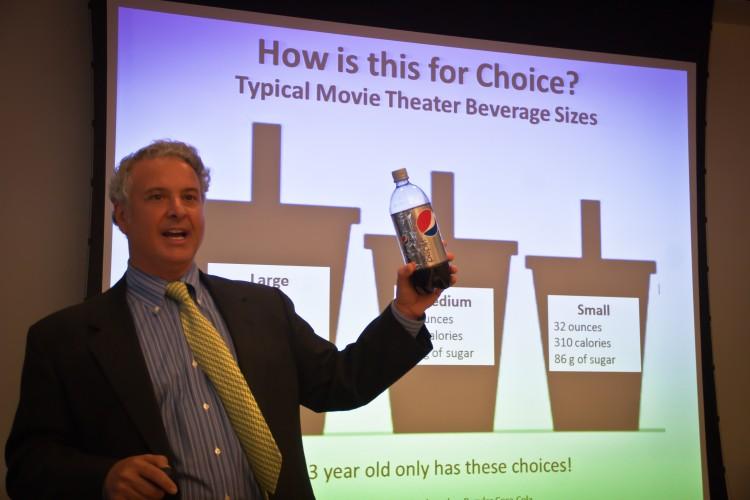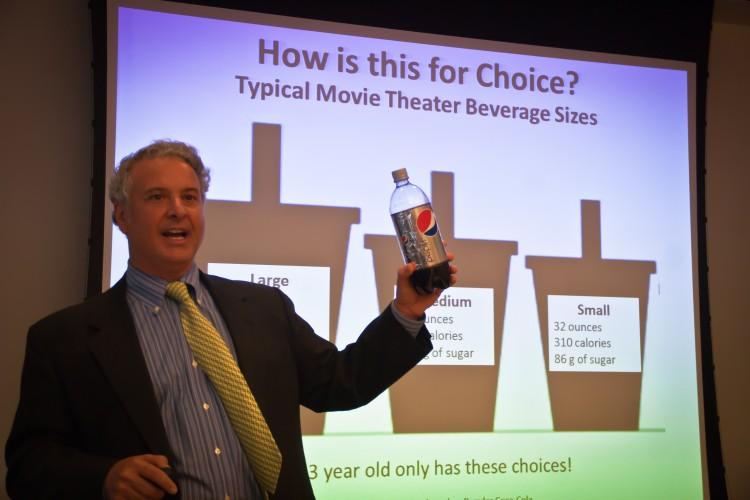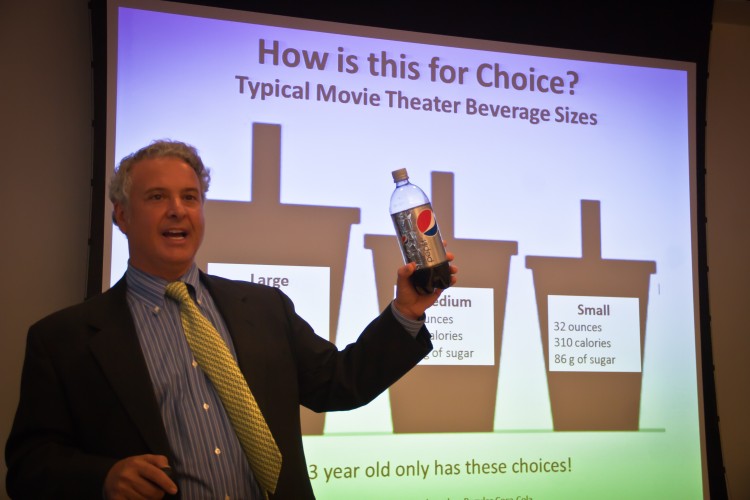NEW YORK—Three experts with Cornell University examined the proposed ban on sugary drinks larger than 16 ounces Thursday, preceding the close of the public comment period.
In May, Mayor Michael Bloomberg proposed the ban in city eateries, theaters, and sports venues. A public hearing will be held in Long Island City next Tuesday, July 24, and the Board of Health is expected to vote on the proposal in September. If approved, the ban could take effect in March 2013.
Over the years, serving sizes for food and drinks have become larger and larger.
For example, the original Coca-Cola was 6.7 ounces. Now there is a 64 ounce “double gulp” cup size, which is almost 2 liters, and some stores may sell even larger sizes. At the same time, obesity has become known as an epidemic. This has led to higher health care costs and prompted different levels of government to attempt to tackle the issue in one way or another.







